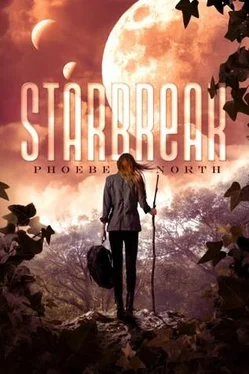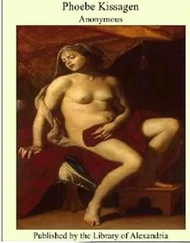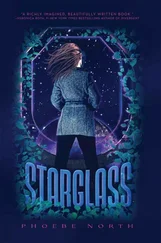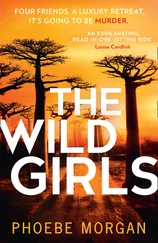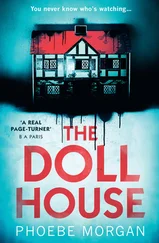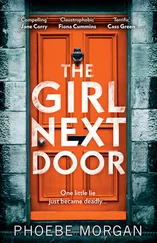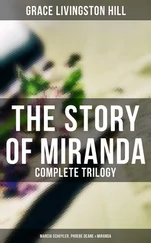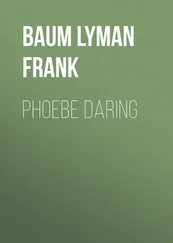I gazed up at the sky. The stars were different here from now they’d been on the Asherah . There they burned steadily, as if someone had punched perfect circles in black paper. Here on Zehava, with the thick atmosphere between us, they twinkled. As soon as I fixed my gaze on one, it winked out, before again blazing to life.
At least the moons stayed in place when you looked at them. There were three—one crescent, one that was hardly any more than a narrow slip of light, and a third, so full that it resembled swollen, blushing fruit.
Akku. Zella. Aire, I thought, and felt my stomach clench. He’d tried to tell me something, something important. But I hadn’t quite understood the importance of moons, scattered across the sky, and the stars between them. Akku, Zella . . .
This sky wasn’t like ours. On the ship the stars above were always shifting, from night to night as we coasted through empty space. There was a new sky every evening; new stars, too. Once, we’d learned in school, sailors had navigated according to the stars above. But ours were inconstant. And we had no moons.
My hands dropped to my side, suddenly as cold as ice. My gaze searched the sky. There were so many stars—hundreds of them, glinting and gleaming, some in straight lines, some in shimmering clumps. But then I saw it. A white star at the apex of the sky, one that burned just a little brighter than the rest. The head of the hunter’s harp. Abstract, sure, but I could see it. The hunter, the hunter in his carriage, holding a harp in his hands. I spun around, realization dawning on me.
“Terra!” Deklan called, his voice teasing. I’d forgotten that he was like that—the sort of boy born to be an older brother. “You’ll catch flies standing around like that!”
I heard Jachin let out a mumble: “Haven’t seen any flies. Haven’t seen any insects at all. . . .”
But I ignored them. Overhead was Aire, so full it might burst, and Akku, the sharp-edged crescent. The mountain dipped between them, forming a moonlit path toward the ice fields in the distance. When I let out a white, joyful breath into the cold air, I heard Rebbe Davison’s song putter to a stop.
“Terra?” he asked. “Are you all right?”
I laughed. Choking, giddy laughter, laughter so hard that my chest ached. I lowered my gaze and turned back toward my companions, all gathered around the dying coals.
“I know where we have to go,” I said.
* * *
“What do you mean you had a dream?”
They’d gathered around me, Rebbe Davison and Ettie, Jachin and Laurel. But Deklan hung back, hugging his rifle to his chest like it was his intended, not the skinny girl who stood just a few meters away. His dark eyes were hard with disbelief, and they pressed me for answers I knew I didn’t have.
“I don’t know how to explain it,” I said. “I know it sounds ridiculous. But that star”—I pointed up, to the head of the hunter’s harp—“is a pole star. We can navigate by it.”
“Navigate to where?”
I squinted through the darkness at Deklan, the words dying on my tongue. I knew that if I said “Raza Ait,” then he’d never believe me, never believe that there was a city waiting for us at the bottom of the mountain where a strange, blue-skinned boy waited for me.
“Civilization!” I said, throwing my hands into the air. “You saw those lights. Thousands of them, all along the coasts. It can mean only one thing: people.” My eyes darted toward Rebbe Davison. He’d been the one to teach us about cities, years and years ago. It had always sounded like some sort of perverse dream—villages that grew and stretched until they could swallow up our enormous ship entirely. It was hard for me to believe too, so I wasn’t surprised when Deklan shook his head.
“Aw,” he said, “you’re delusional.”
“Deck!” called Laurel, but Deklan hefted the gun up onto his shoulder and headed back toward the fire. After a moment she followed him, but not without hesitation. I saw her bite down on her full lower lip, like she was considering something—turning the idea of it over in her mind. But what good were ideas? Soon we’d either freeze or starve. If I were going to make it to the boy, I needed to do something. I needed to take action. I buried my face in my hands, letting out an unhappy groan.
I felt a tug at my sleeve. It was Ettie. She pulled my fingers down.
“I believe you, Terra,” she said. Her expression was earnest, heartfelt—her dark eyebrows knitted up and hopeful. But it helped, more than I thought it would. I smiled weakly.
“What do you propose?” Jachin asked at last. The man had spoken little since the crash. Though he’d helped us with our inventory, his words then had been perfunctory. Officious. Yet now his expression was hopeful. “I asked HaShem to save us, but I didn’t think an answer would come so soon.”
“HaShem?” I asked. Jachin’s cheeks went pink. Rebbe Davison answered for him.
“Mar Levi here is a believer. That’s why he joined the Children of Abel.”
“My family passed our religion down like an inheritance. No matter what the Council said, I’ve never stopped believing.”
I examined the man’s features. Small, close set. But intelligent. It was hard for me to believe that a specialist—a biologist—believed in God. The only other person I’d ever known who believed in God was Rachel, my best friend. And look where it had gotten her. She’d been trapped in the clock tower when the riots broke out. And now, who knew?
“Someone died .” I said at last. My skepticism was obvious—it trickled out like water down the surface of a frozen rock. But Jachin didn’t waver. He didn’t even flinch.
“But we lived. And now your dreams have told you where to go. That’s miraculous, isn’t it?”
I let out a long sigh. I didn’t believe in miracles. There was an answer here—I just had to find it. But I suspected it wouldn’t come until I found my boy, so I changed the subject.
“We’ll walk south.” I turned back to where the mountain pass sloped down beneath the light of two moons. “That way. Toward the largest cluster of lights. That’s our best chance to find people to help us. We should spend a few hours preparing our supplies, then take off by the first light of dawn.”
“It’s a crazy plan,” Deklan called from the fire pit’s edge. “Following some dream!”
“Do you have something better in mind?” Jachin snarled back. Deklan clutched his gun against his chest, apparently shamed. No matter our differences in philosophy, I was glad to have the specialist with me. He didn’t merely believe in some unfathomable spirit. He believed in me, too. If we were going to make it to Raza Ait, I’d need that faith.
“Good,” Jachin said, and just like that it was decided. “South, then. By dawn’s first light.”
* * *
In the gray light we gathered our supplies, stuffing each knapsack to the brim with as much food as we could carry, making sure the rifles were in good working order and fully charged. We watched as Deklan propped one up onto his shoulder, flicked the safety back, and shot into the mountains. The noise seemed to ripple on the air. We all flinched; Ettie let out a squeal that was lost under the sound of the shot.
“They work,” Deklan said, holding the hot barrel in both hands. Rebbe Davison gave a nod and began to dole the weapons out, his mouth a grim line. I took one, feeling the awkward weight. It had a switch on it, from two hundred fifty to a thousand sones.
“Can this kill someone?” Jachin asked. Deklan glanced uncertainly at Rebbe Davison.
“If you calibrate it correctly,” our teacher said, “yes.”
Читать дальше
